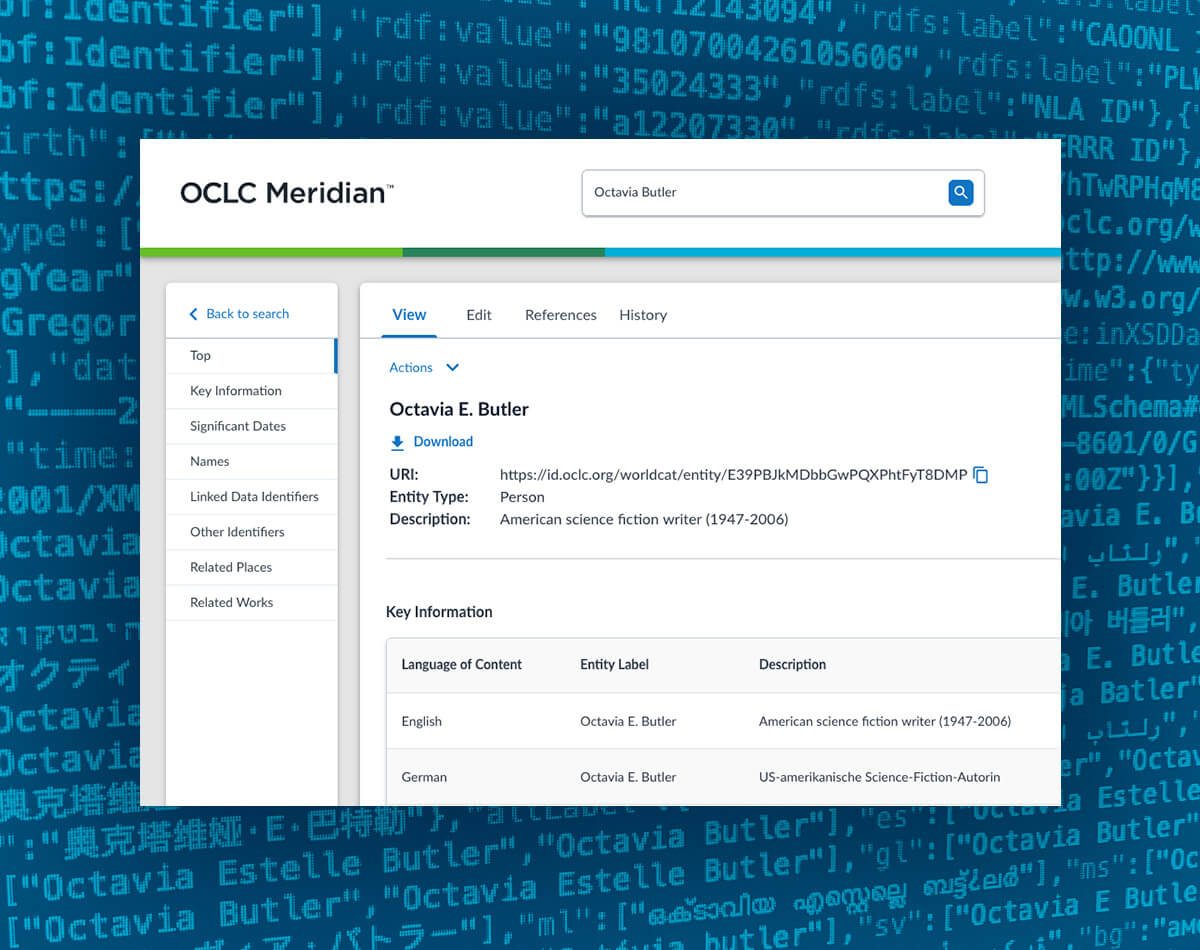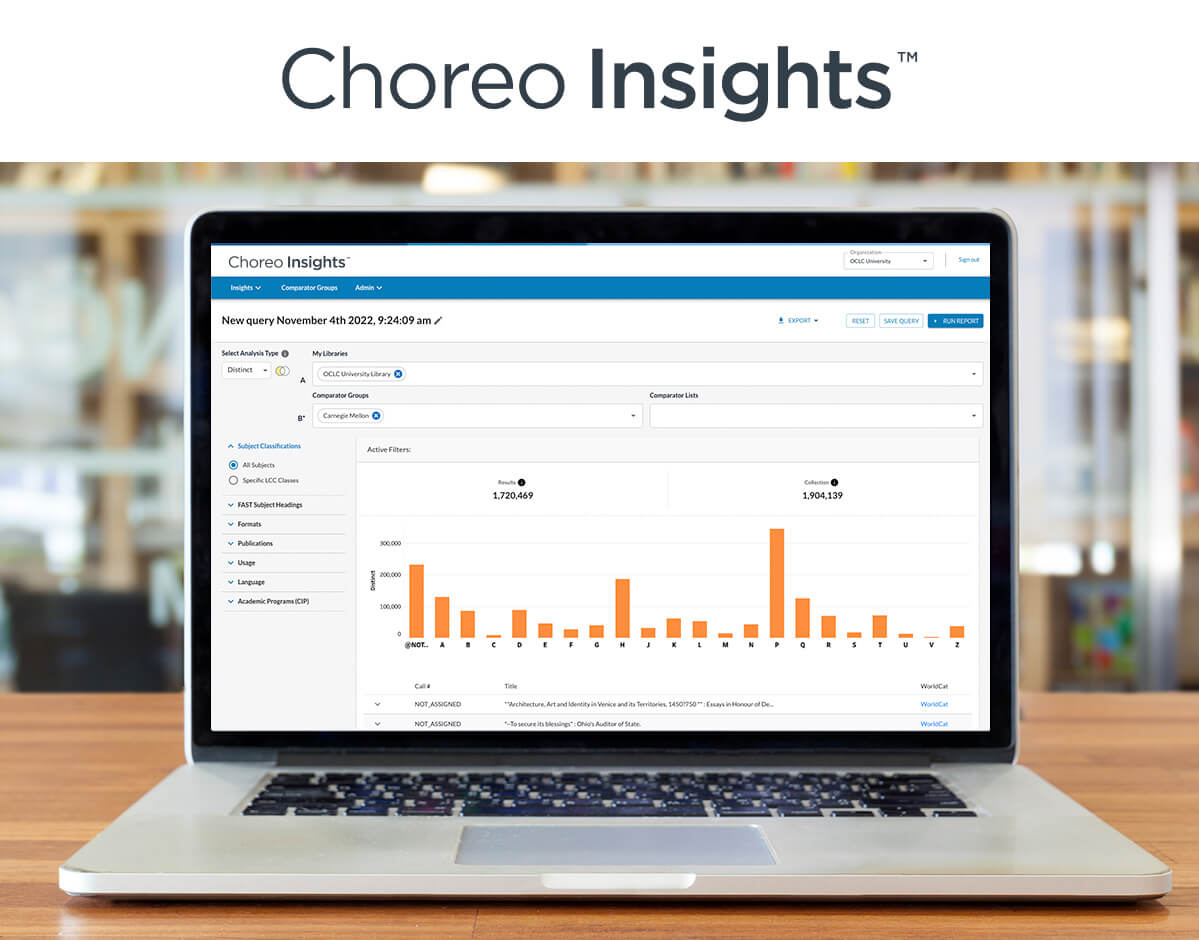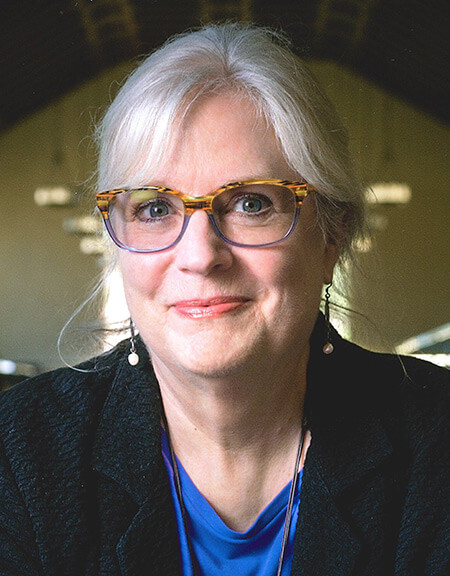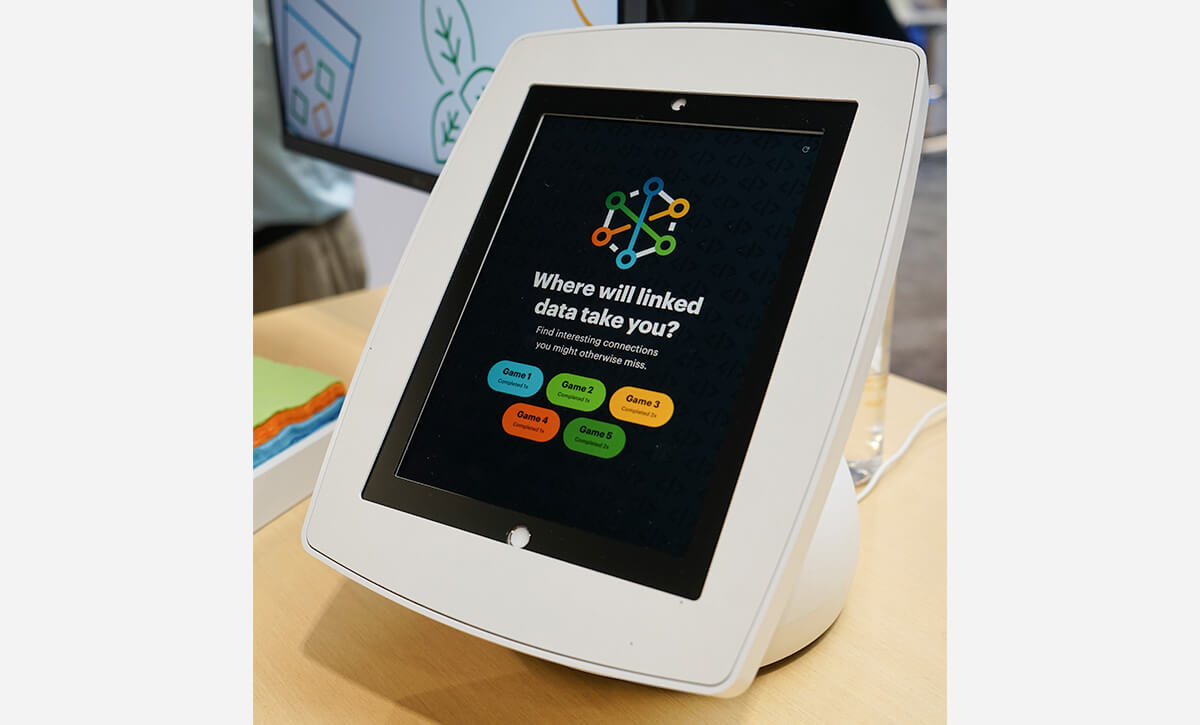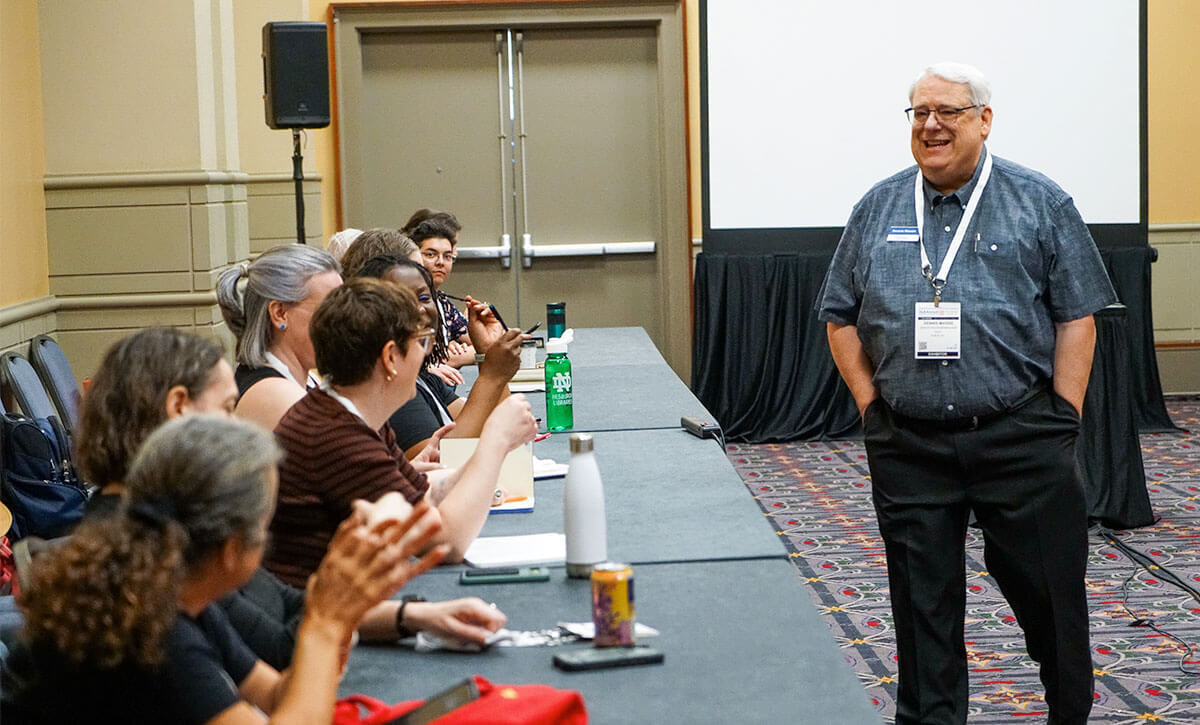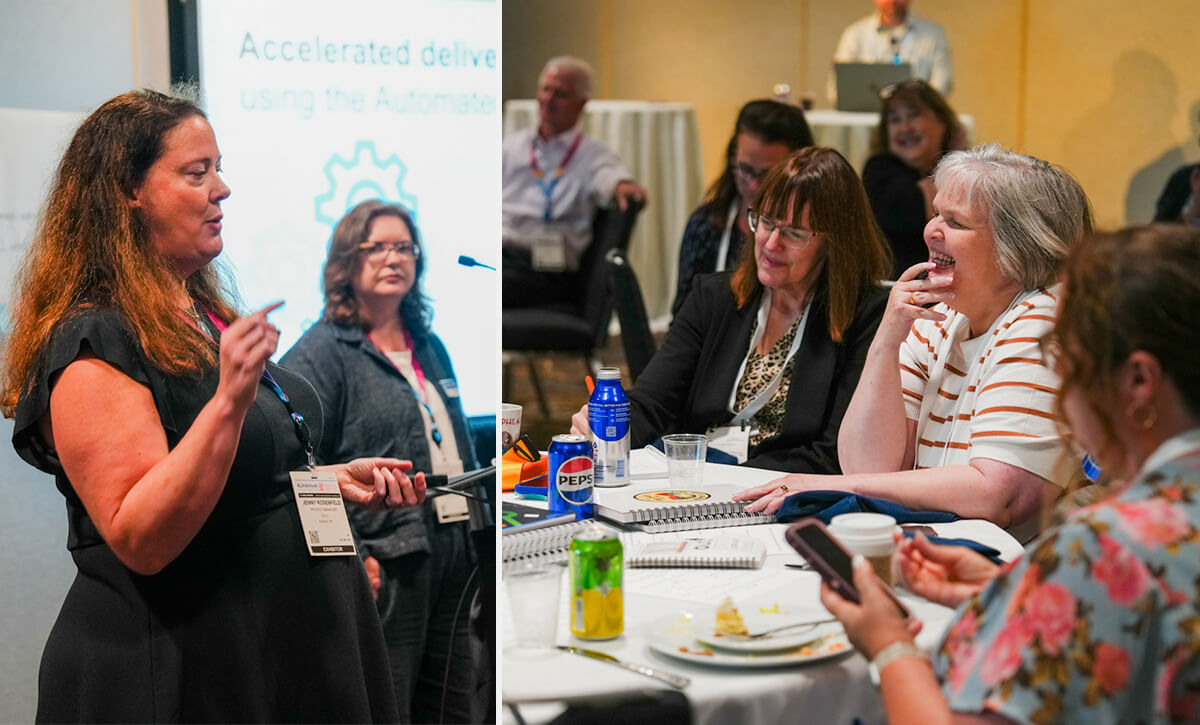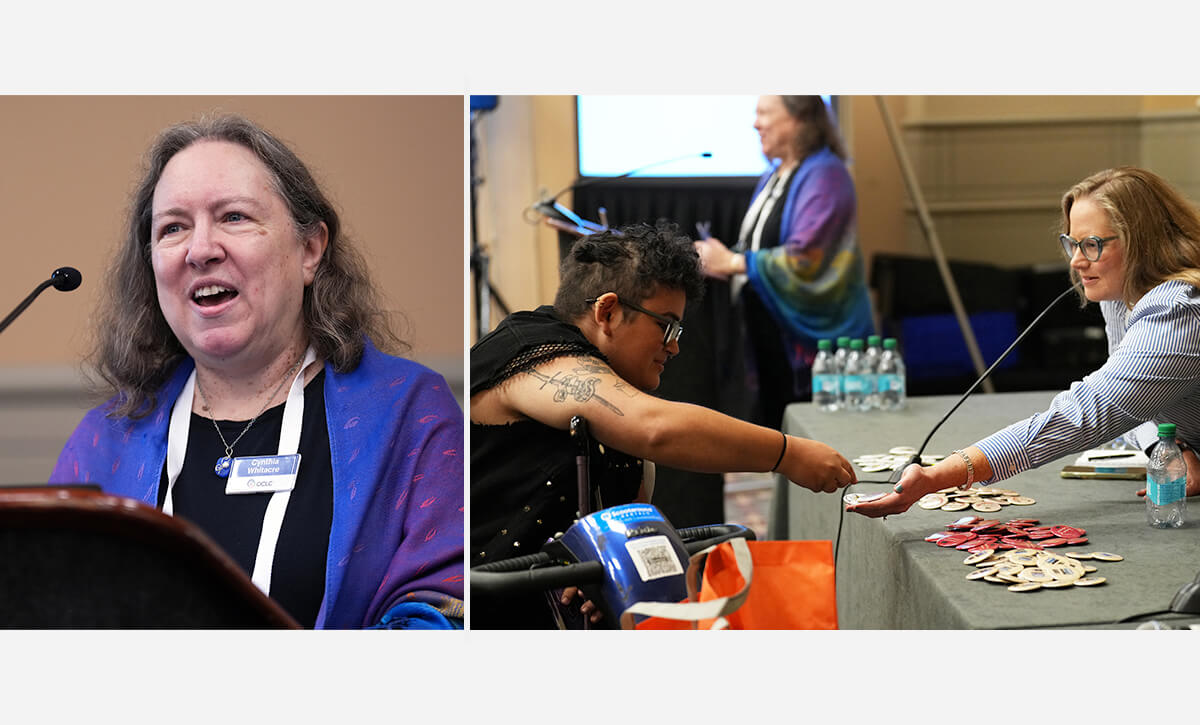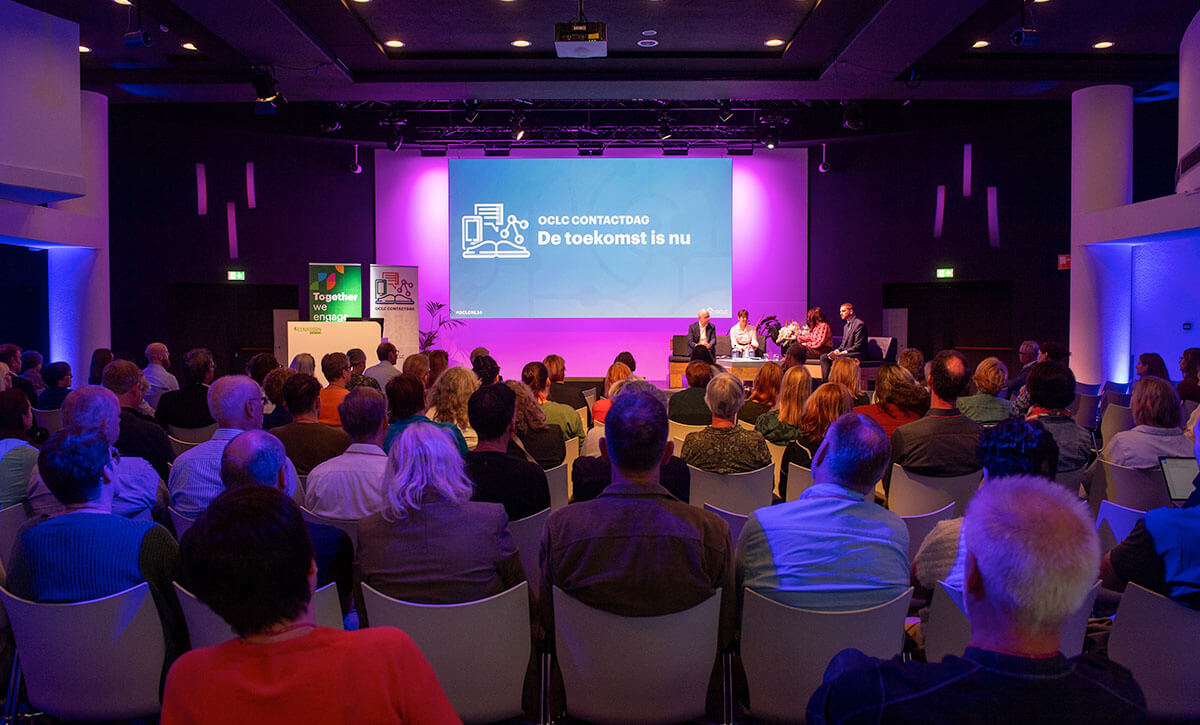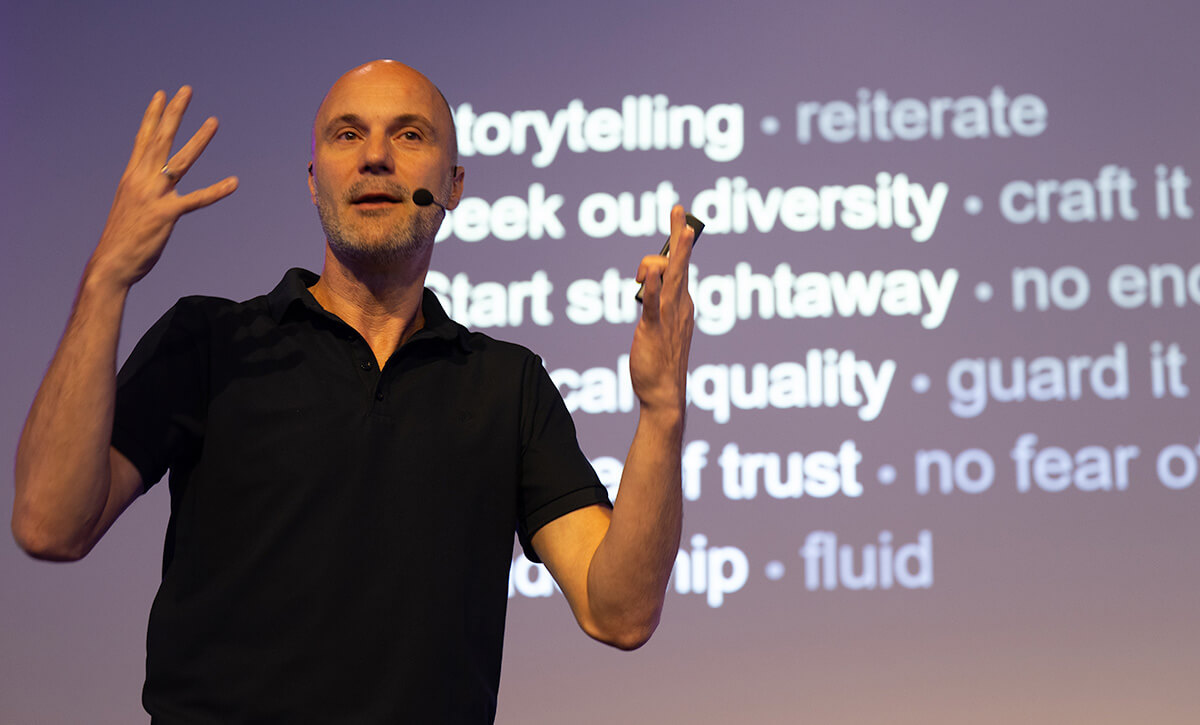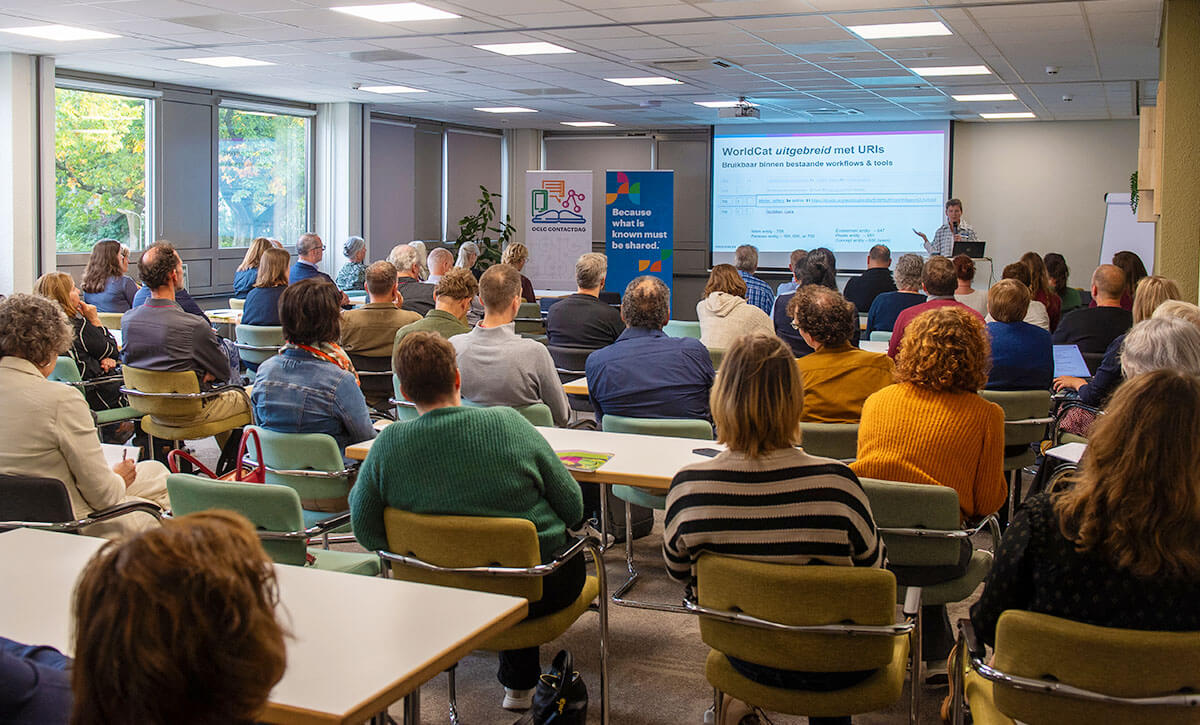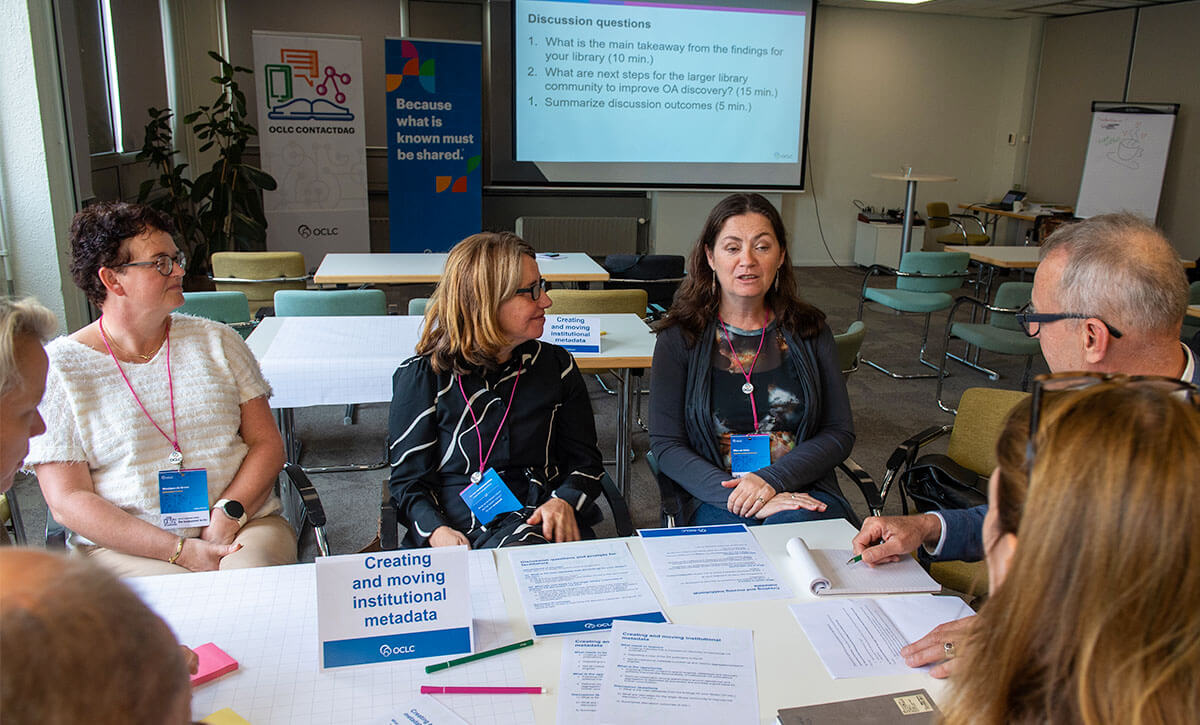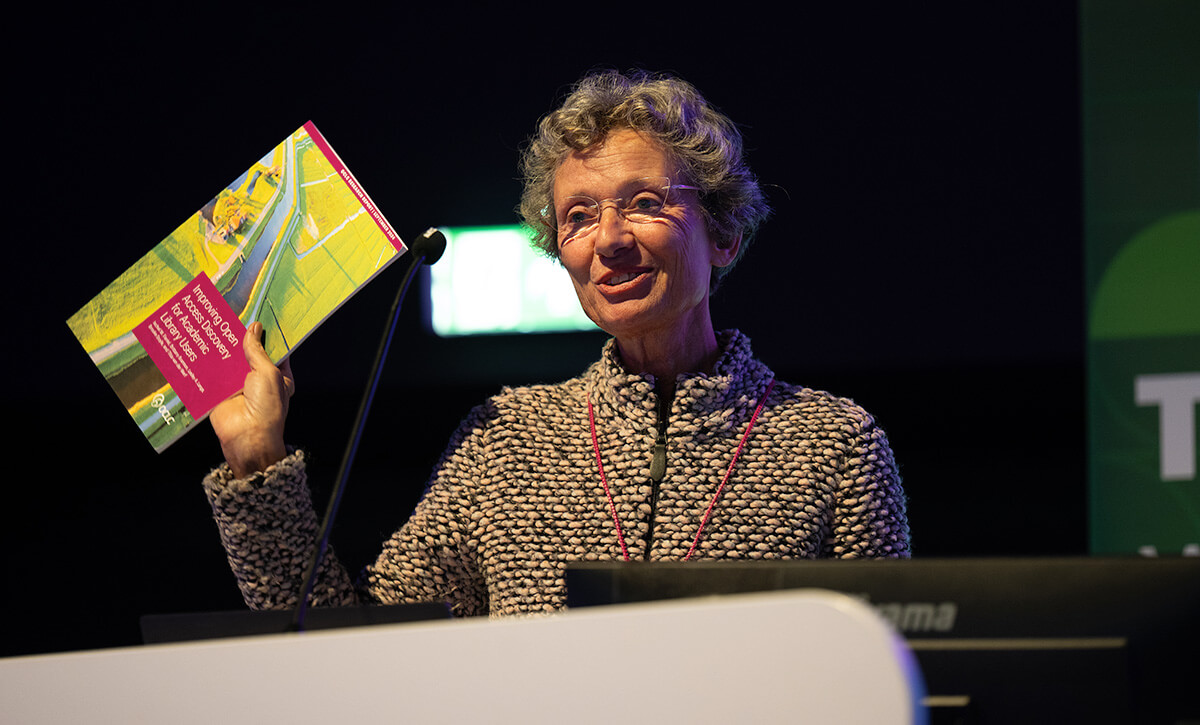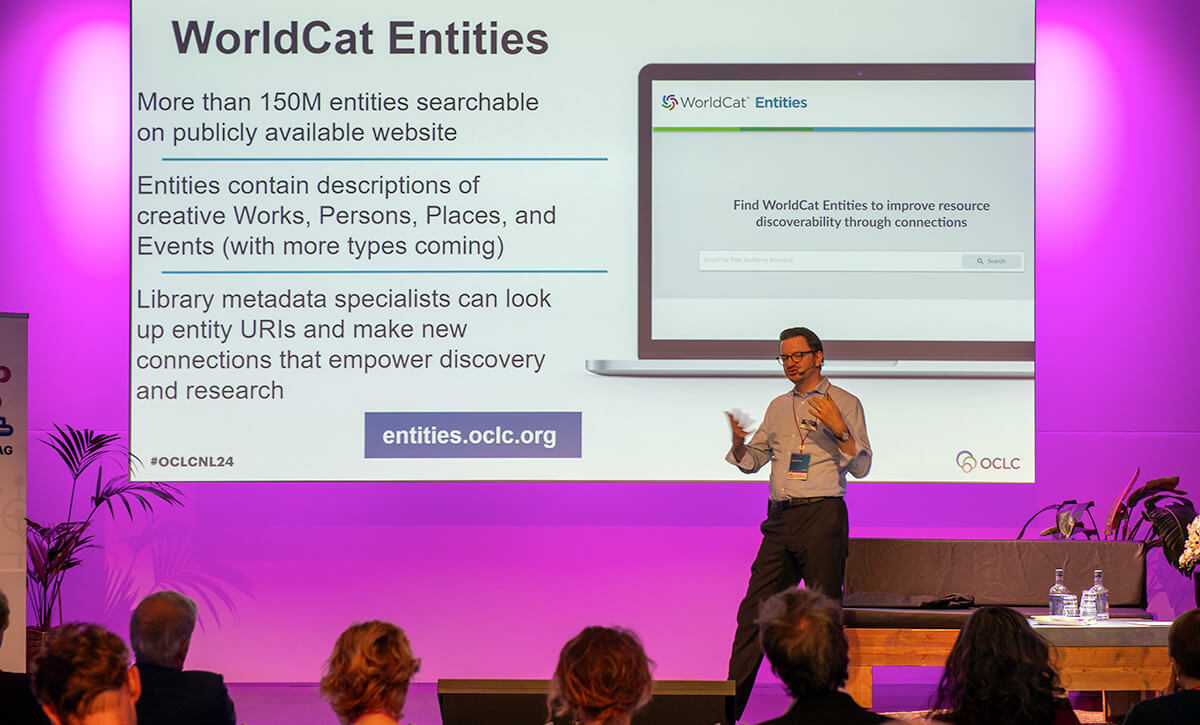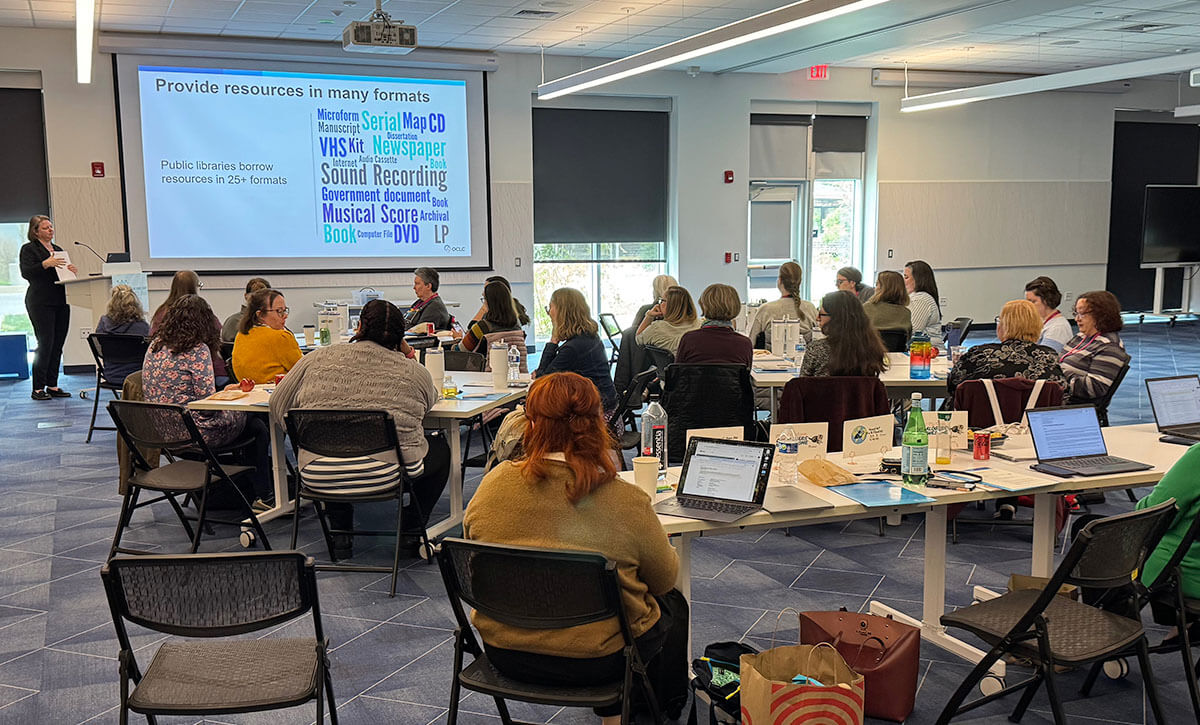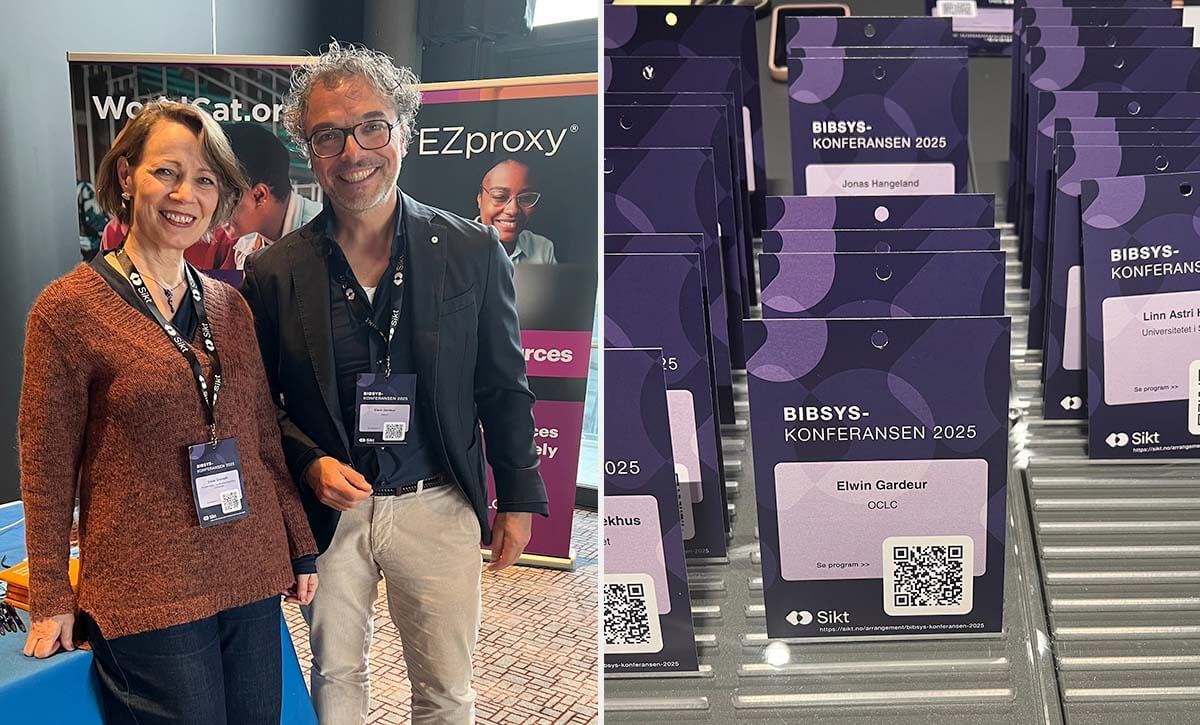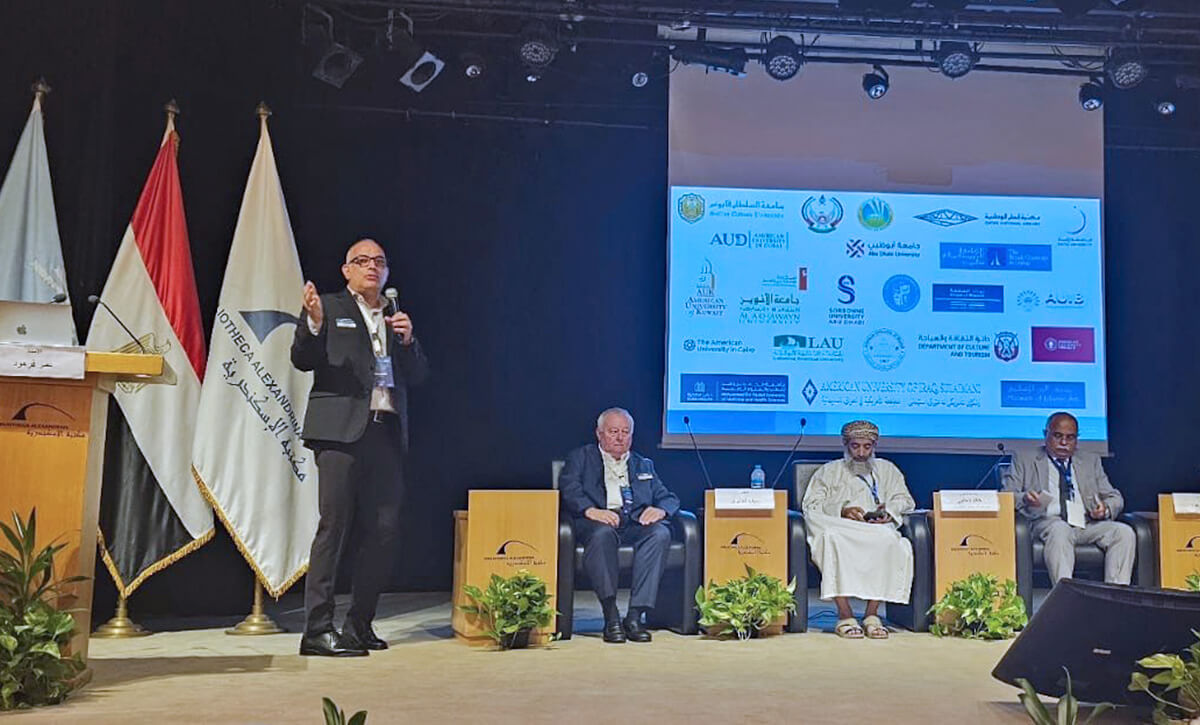Libraries are stepping into the AI era—and everyone benefits. In FY25, OCLC worked with libraries to put AI to practical use, speeding up article delivery, simplifying cataloging, and improving discovery for users everywhere. From faster resource sharing to smarter metadata tools, libraries are saving time and serving communities better. At the same time, public libraries are expanding digital access with CloudLibrary and building stronger networks with Wise®. Together, these investments are helping libraries stay connected, efficient, and ready for the future.
Preparing libraries for an AI future
AI is reshaping industries, daily life—and libraries. As AI grows more powerful, it offers libraries new ways to analyze data, enhance services, and strengthen community engagement.
In FY25, guided by insights from library professionals, we put AI to work in practical ways to make library processes easier, more efficient, and future ready.

Get articles fast
Library users expect fast delivery of resources. And to help them meet this demand, our Express digital delivery program is leveraging AI and data-driven insights to connect libraries that deliver articles and digital resources within 10 hours. In FY25, libraries in the program reached a significant milestone—filling more than 2 million copy requests through OCLC’s resource sharing network.
Find lenders using intelligent timing
AI and machine learning are identifying lenders based on real-time activity, ensuring ILL requests are routed to libraries most likely to fulfill them. Intelligent timing reduces the time ILL staff spend reviewing requests and speeds delivery for users.
Check knowledge base coverage
This AI feature lets libraries automatically respond ‘no’ to copy requests outside of their WorldCat knowledge base subscription. This allows ILL staff to focus only on those whose library has the coverage range and license terms to fill.
Merge duplicate records
Libraries save time and improve discovery when WorldCat is free of duplicates. In FY25, we extended our AI model to merge records across all formats, languages, and scripts. The project began in 2023, when 300+ cataloging professionals helped validate a model that removed 5.4 million duplicate print records. Since then, we’ve refined the algorithm, tested it extensively, and worked with WorldCat Member Merge libraries to confirm results. By combining AI with community expertise, we’re keeping WorldCat accurate, efficient, and valuable for libraries and their users worldwide.
Recommend subject classification
Cataloging often means spending a lot of time on subject analysis and assignment, which slows processing down. Our new AI feature speeds things up by suggesting DDC, LCCN, and LCSH access points right in the cataloging workflow. Catalogers can simply review and select from the recommendations, making the process faster and more efficient. The result is streamlined workflows, higher throughput, and more resources quickly available for discovery.
Explore AI in libraries
We’re helping libraries stay ahead with the latest in AI. OCLC researchers are investigating how AI can transform library workflows and are sharing insights that libraries can use right away. This includes launching the Managing AI in Metadata Workflows working group, studying how academic libraries use AI as reference chatbots, and examining how AI supports four key areas: metadata management, resource sharing, archives and special collections, and research support. Together, this work helps libraries confidently navigate new technology and lead the way in innovation.
“When people put in an article request and see how fast it comes back, they’re really impressed. They are wowed by it. I am too.”
Susan Yach
Interlibrary Loan and Serials Assistant
Moraine Valley Community College
Accelerating the digital transition for public libraries
Public libraries need the right mix of infrastructure and content to speed their digital transition. To address those needs, in FY25 we increased access to digital content while improving the user experience with CloudLibrary. And we strengthened our role in the public library sector in the Netherlands with Wise.
Expand digital access
Public libraries can give their communities unlimited access to a growing collection of ebooks, audiobooks, magazines, newspapers, comics, and videos through our CloudLibrary platform—making it easier to keep up with demand for digital collections. In FY25, we integrated CloudLibrary content with WorldCat, so libraries with OCLC cataloging subscriptions can make this content more visible and discoverable both in their catalogs and across the web. Librarians have noticed: CloudLibrary won Platinum honors in the 2025 Modern Library Awards, based on voting by those who have experience with digital content services.


Connect library leaders
To help current and future public library leaders stay informed and inspired, we continued our Connecting the Dots series. In FY25, through webinars, email, and social media, we reached more than 6,000 libraries across the US and Canada. The six webinars alone drew more than 600 live participants and another 250 on-demand viewers, creating new opportunities for leaders to learn, share, and connect.
Build a stronger library network
Public libraries across the Netherlands will come together under a new Unified Library System powered by Wise, making it easier for millions of people to access services and resources. In FY25, we signed an agreement with the Cooperative for Digital Innovation Together for the implementation of the new system. With 102 libraries participating—serving 14.4 million residents—this shared system will strengthen the country’s digital infrastructure and create a more connected, robust public library network. The result will be better access, smoother experiences, and stronger support for communities nationwide.

“The Cooperative for Digital Innovation Together and OCLC share the vision that libraries are more than just places to borrow books: they provide access to knowledge, foster personal development, and create equal opportunities. Together, we are building a flexible, scalable, and future-oriented system that supports libraries even better.”
Peter van Eijk
Former Member of the Governing Board
Cooperative for Digital Innovation Together
Emerging insights pointing libraries to the future
As library staff and leaders navigate unknown, fast-paced change, OCLC Research empowered them to overcome challenges and address real-world needs through innovative research and project efforts.
Make open access publications easier to find
Libraries want their communities to get the most out of open access (OA) research, but discoverability can be a challenge. To help, OCLC Research published Improving Open Access Discovery for Academic Library Users, a report that shares practical, evidence-based ways to make scholarly OA publications easier to find. Based on insights from user behaviors and staff practices at seven universities in the Netherlands on the cutting edge of OA research, the report highlights where gaps exist and offers clear recommendations. Libraries worldwide are already using these findings to strengthen access and improve the research experience.
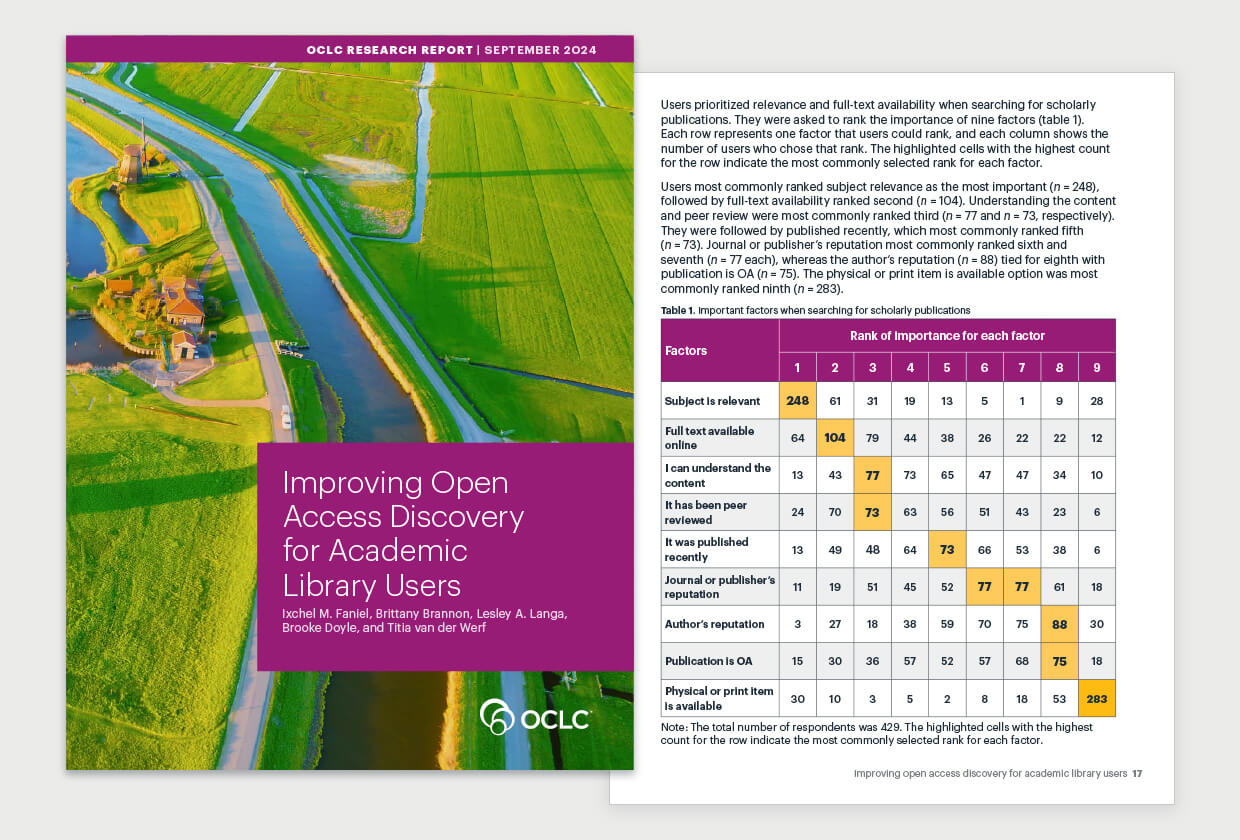

Strengthen shared print
Libraries across the US and Canada are working together to preserve print collections, and our report Stewarding the Collective Collection helps them do it more effectively. By mapping the current state of shared print, the research gives libraries the baseline data they need to make informed collection decisions. It highlights successes, uncovers risks, and points to opportunities for growth—helping libraries improve metadata, expand strategically, and ensure the long-term sustainability of shared print initiatives.
Boost impact through campus partnerships
Libraries can increase their visibility and strengthen research support by working across campus, and our Library Beyond the Library research explored how. By collecting stories and analyzing cross-campus collaborations, we highlighted ways libraries are raising their profile and expanding services. The full findings—coming next fiscal year—will offer recommendations to help library leaders grow partnerships, showcase their value, and make a bigger impact on campus.




